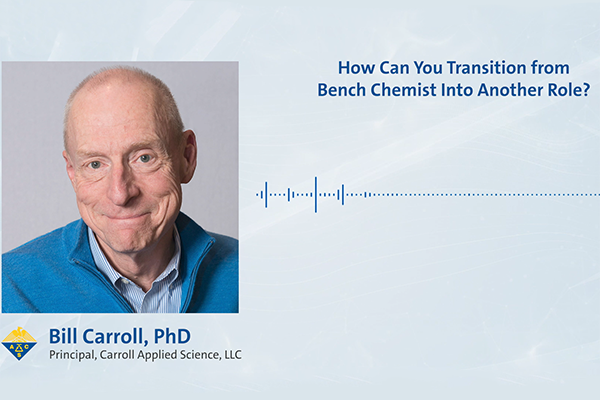
As an ‘experienced’ chemist, and also as an ACS Career Consultant, students about to graduate have asked me whether they should go to graduate school or go out into the workforce. It’s a legitimate question I asked myself many years ago. When I got my bachelor’s degree, that question took the form of “do I go to grad school or stay in the family automobile business?”
I had a marginal B average in college, and since it had been my summer job for four years, selling cars was easy for me to visualize at that time. I also thought about trying to get a lab job at the Amoco refinery in Whiting, Indiana near my home. Obviously, by now, it’s clear I decided to go to grad school and thereby hangs a tale for another time. Let’s simply say that somewhere along the line I found my way. But looking back, I now understand the three questions that should help guide your decision-making, and they apply to whatever advanced degree we’re talking about, whether it’s a PhD, an MBA or anything else.
What do you want, and more importantly, why do you want it?
How dedicated are you to that idea?
When’s the right time?
For many people, the answer to the first question is: “I want an advanced degree so I can get a better job and make more money.” And, it’s true: PhD Chemists tend to have higher ranking jobs in industry, and on the average, the ACS salary survey confirms that PhDs in chemistry make more than Bachelors’ chemists.
But if we look outside chemistry, there is currently a crisis in graduate education in the humanities: students can spend seven to ten years working toward a PhD in English or History, and at the end find themselves in a terribly constrained market that seems limited to scarce jobs in academe. Many of those graduates feel cheated.
This is why the first question is important, and so is the drill-down. The right answer to question one is: “Because this is something I really want to do.” Every degree—whether bachelors’ or advanced—should be seen first as a consumer good—something I did for me—to, as they say, make the inside of my head an interesting place to be for the next sixty years. Maybe there’s a “job” at the end of the rainbow; I would hope there was more of an “avocation” or a “profession,” and it’s important for each person to compare, contrast and understand those three words in quotation marks.
And the second question hinges on the first “How bad do you want it?” I firmly believe you don’t have to be lightning smart to get a PhD in chemistry. Heaven knows I’m an example of someone who’s apparently not, and I’ll remind you of my bare B average. But you do have to want it, and in grad school I refused to give up.
There are so many hurdles to overcome: courses, cumes, admissions to candidacy—and what if your research just doesn’t work? I skated the edge of all those things. There were times when going back to selling cars or playing guitar on a street corner looked like a reasonable off-ramp. But in the end, I wanted my union card, as we called it, and I wanted it “that bad.”
If you’re chasing a degree for the credential in the hope that alone will improve your career—the credential may prove to be a golden ticket and it may not. But you’re always rewarded if you pursued the study for the sake of something you need or desire to learn and let the job chips fall where they may.
Finally, the right time may be different for different pursuits. For a PhD in chemistry, I’ll be blunt—it is devilishly hard to step away from an industry salary and civilized work hours and go back to a grad student’s salary and the work-life balance of someone rowing a Roman galleon. And your academic chemistry will never be stronger than the day you get your Bachelor’s degree. I say, if you want it, do it now.
But context is important—an MBA is most useful after you’ve had some time in the real world and have seen how business works. There are so many cases where a business education provides “a-ha” moments—“So THAT’s what that means.” If you want an MBA, give it a few years and see how you feel then. It may yet be the right answer or the wrong answer, and the older you get, the more comfort zone you have to set aside to get there. But know why it’s important to you before you make the decision.
For me, “want to” goes a long way in most things. Pick a goal you want “that bad,” commit to it, and refuse to lose.
Copyright 2021 American Chemical Society (All Rights Reserved)
This article has been edited for length and clarity. The opinions expressed in this article are the author's own and do not necessarily reflect the view of their employer or the American Chemical Society.





